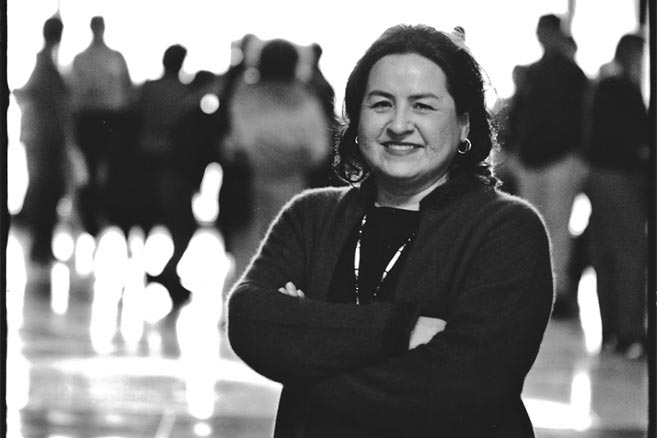Dr. Brenda Child has spent a lifetime studying, writing and speaking about her fellow Ojibwe people in the Great Lakes region and on the reservations of Minnesota.
A 1981 graduate who majored in history and social studies at BSU, Child is a professor of American Indian studies and chair of the Department of American Studies at the University of Minnesota.
Her books have explored the impact of boarding schools on families, the role of women in community survival and the history of indigenous education. She earned her master’s and doctorate in history from the University of Iowa.
Child received the North American Indian Prose Award for her first book, “Boarding School Seasons: American Indian Families, 1900-1940,” published in 2000. She also is a recipient of the National American Indian Book Award, a Best Book in Midwestern History designation and an American Association of State and Local History Award of Merit for her most recent book, “Grandfather’s Knocking Sticks: Ojibwe Family Life and Labor on the Reservation.”
Born on the Red Lake Indian Reservation, Child said changing gender roles during the 20th century was an important theme in “Grandfather’s Knocking Sticks,” published in 2014.
“I looked at the way Indian people worked before reservations and how it changed after reservations,” she said of her latest work. “For example, pre-reservation women primarily harvested rice while men performed other labor. Since the 1930s, wild rice was often harvested by men. It reflects the adaptability of the Ojibwe people.”
Now living with family in both St. Paul and Bemidji, Child also serves as a trustee of the National Museum of the American Indian — Smithsonian and of the Minnesota Historical Society.

